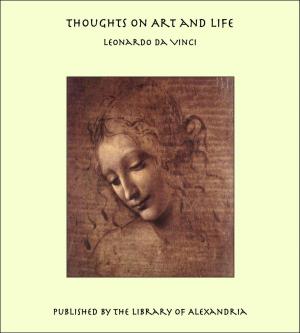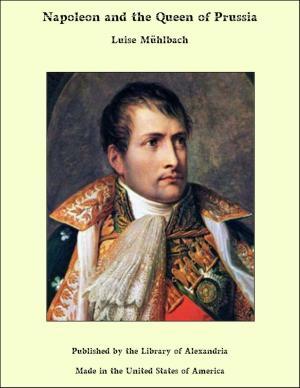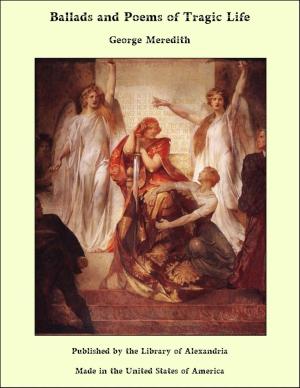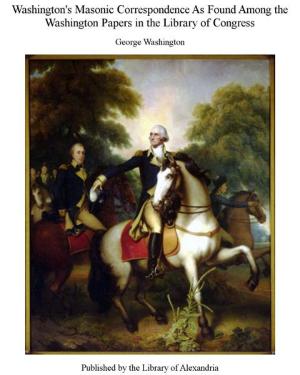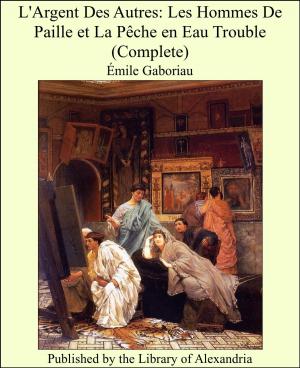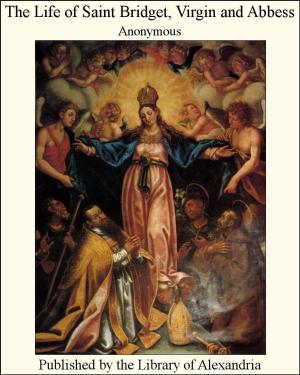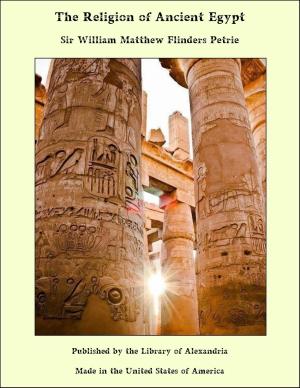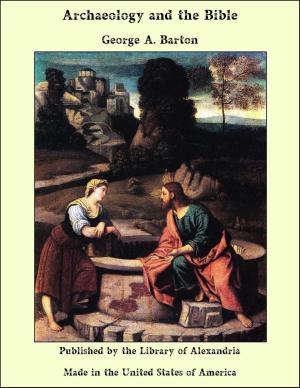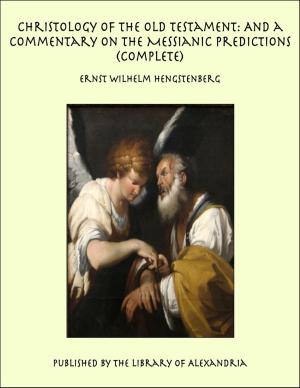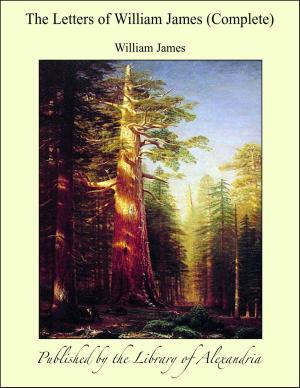American Lutheranism Vindicated; Or, Examination of the Lutheran Symbols, on Certain Disputed Topics: Including a Reply to the Plea of Rev. W. J. Mann
Nonfiction, Religion & Spirituality, New Age, History, Fiction & Literature| Author: | Samuel Simon Schmucker | ISBN: | 9781465537843 |
| Publisher: | Library of Alexandria | Publication: | March 8, 2015 |
| Imprint: | Language: | English |
| Author: | Samuel Simon Schmucker |
| ISBN: | 9781465537843 |
| Publisher: | Library of Alexandria |
| Publication: | March 8, 2015 |
| Imprint: | |
| Language: | English |
The design of the following treatise, and the occasion which elicited it, are indicated both on the title page and in the introduction of the work itself. Its primary object is not to discuss the obligation of Synods to adopt the doctrinal basis of the Platform. What we felt it a duty to the church to publish on that subject, we have presented in the Lutheran Observer. But the pamphlet of the Rev. Mann, entitled Plea for the Augsburg Confession, having called in question the accuracy of some of the interpretations of that Confession contained in the Definite Synodical Platform, and affirmed the Scriptural truth of some of the tenets there dissented from; it becomes a question of interest among us as Lutherans, which representation is correct. For the points disputed are those, on the ground of which the constitutions of the General Synod and of her Seminary avow only a qualified assent to the Augsburg Confession. In hope of contributing to the prevalence of truth, and the interests of that kingdom of God which is based on it, the writer has carefully re-examined the original documents, and herewith submits the results to the friends of the General Synod and her basis. Since these results as to the question, what do the symbols actually teach? are deduced impartially, as must be admitted, from the original symbolical books themselves, as illustrated by the writings of Luther, Melancthon, and of the Other Reformers of the same date; those who approve of those books should so far sustain our work: and those who reject these tenets, that is, the New School portion of the church, will not object to seeing a vindication of the reason why they and the General Synod avow only a qualified assent even to the Augsburg Confession, namely, because these errors are there taught. _The topics here discussed,_ are all such as are left free to individual judgment, both by the Constitution of the General Synod, and that of her Theological Seminary. Both explicitly bind to the Augsburg Confession, only so far as the _fundamental_ doctrines, not of that confession, but of the _Scriptures_ are concerned. A _fundamental_ doctrine of Scripture is one that, is regarded by the great body of evangelical Christians as essential to salvation, or essential to the system of Christianity; so that he who rejects it cannot be saved, neither be regarded as a believer in the system of Christian doctrine. The doctrinal peculiarities of no denomination, though often highly important, can therefore be regarded as _fundamental,_ without unchurching all Other denominations and consigning them to perdition. The topics here discussed are, 1. Ceremonies of the Mass. 2. Private Confession and Absolution. 3. The Divine institution of the Christian Sabbath. 4. Nature of Sacramental Influence. 5. Baptismal Regeneration. 6. The nature of the Saviour’s presence in the Lord’s Supper; and, 7
The design of the following treatise, and the occasion which elicited it, are indicated both on the title page and in the introduction of the work itself. Its primary object is not to discuss the obligation of Synods to adopt the doctrinal basis of the Platform. What we felt it a duty to the church to publish on that subject, we have presented in the Lutheran Observer. But the pamphlet of the Rev. Mann, entitled Plea for the Augsburg Confession, having called in question the accuracy of some of the interpretations of that Confession contained in the Definite Synodical Platform, and affirmed the Scriptural truth of some of the tenets there dissented from; it becomes a question of interest among us as Lutherans, which representation is correct. For the points disputed are those, on the ground of which the constitutions of the General Synod and of her Seminary avow only a qualified assent to the Augsburg Confession. In hope of contributing to the prevalence of truth, and the interests of that kingdom of God which is based on it, the writer has carefully re-examined the original documents, and herewith submits the results to the friends of the General Synod and her basis. Since these results as to the question, what do the symbols actually teach? are deduced impartially, as must be admitted, from the original symbolical books themselves, as illustrated by the writings of Luther, Melancthon, and of the Other Reformers of the same date; those who approve of those books should so far sustain our work: and those who reject these tenets, that is, the New School portion of the church, will not object to seeing a vindication of the reason why they and the General Synod avow only a qualified assent even to the Augsburg Confession, namely, because these errors are there taught. _The topics here discussed,_ are all such as are left free to individual judgment, both by the Constitution of the General Synod, and that of her Theological Seminary. Both explicitly bind to the Augsburg Confession, only so far as the _fundamental_ doctrines, not of that confession, but of the _Scriptures_ are concerned. A _fundamental_ doctrine of Scripture is one that, is regarded by the great body of evangelical Christians as essential to salvation, or essential to the system of Christianity; so that he who rejects it cannot be saved, neither be regarded as a believer in the system of Christian doctrine. The doctrinal peculiarities of no denomination, though often highly important, can therefore be regarded as _fundamental,_ without unchurching all Other denominations and consigning them to perdition. The topics here discussed are, 1. Ceremonies of the Mass. 2. Private Confession and Absolution. 3. The Divine institution of the Christian Sabbath. 4. Nature of Sacramental Influence. 5. Baptismal Regeneration. 6. The nature of the Saviour’s presence in the Lord’s Supper; and, 7

